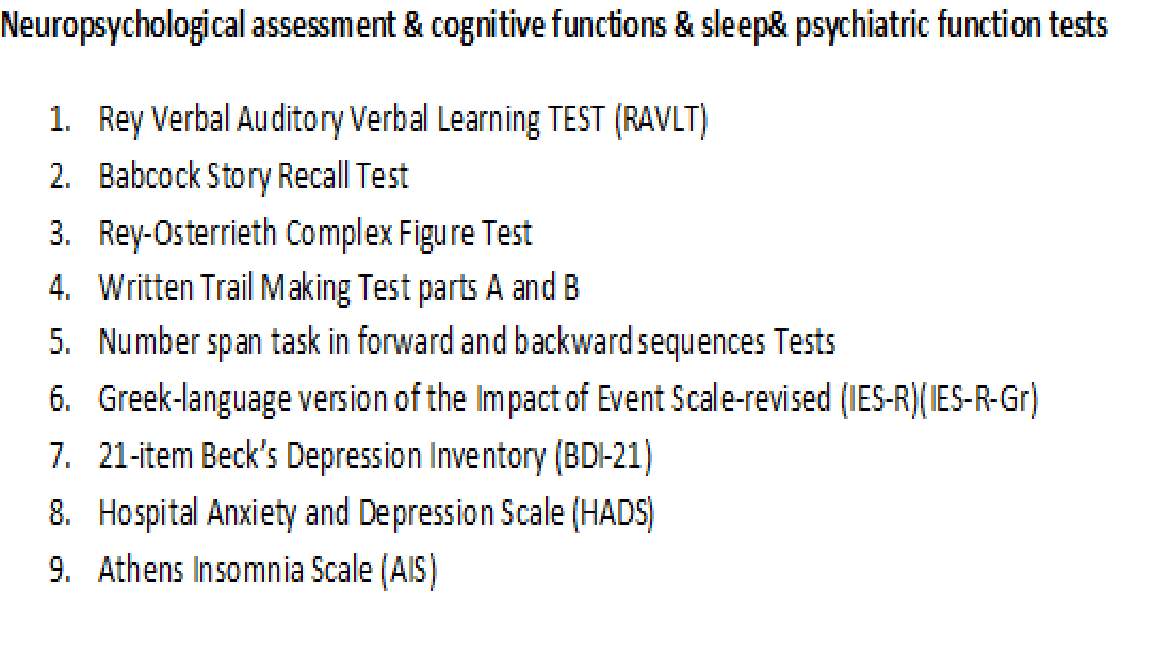Abstract
There is a limited understanding of the neurocognitive and neuropsychiatric sequelae of LC syndrome. We evaluated the cognitive status and mental health symptoms of 74 LC pts (53 women, 62 with ?12 years education) that fulfilled WHO?s definition for LC, at an interdisciplinary LC outpatient clinic at Evangelismos Hospital Greece by neuropsychological assessment of cognitive functions, post traumatic, depression, insomnia and anxiety symptoms. 39.18% demonstrated abnormally low scores (?-1,50 z-scores) at ?3 neuropsychological subtests (NPSSTS), 10.81% demonstrated abnormally low scores at 2 NPSSTS and 27.03% demonstrated abnormally low scores at 1 NPSSTS. Only 22.97% didn?t demonstrate impairment of cognitive functions. Verbal learning of world list (25.68%), verbal memory of world list (19.18%), verbal immediate recall of story (16.44%), verbal episodic memory (19.18%), visuospatial immediate recall (30.99%), visual memory (28.57%) and verbal working memory (16.22%) were most commonly impaired. We observed that 37,8% self-reported high severe symptoms of trauma related distress and 39.20 % reported clinically important symptoms of depression. Our study revealed that cognitive impairments and emotional distress were common among adult LC individuals. We believe that our findings help understanding the neuropsychologic profile of LC, support multi-disciplinary study and point out the need for neuropsychological rehabilitation.
39.18% demonstrated abnormally low scores (?-1,50 z-scores) at ?3 neuropsychological subtests (NPSSTS), 10.81% demonstrated abnormally low scores at 2 NPSSTS and 27.03% demonstrated abnormally low scores at 1 NPSSTS. Only 22.97% didn?t demonstrate impairment of cognitive functions. Verbal learning of world list (25.68%), verbal memory of world list (19.18%), verbal immediate recall of story (16.44%), verbal episodic memory (19.18%), visuospatial immediate recall (30.99%), visual memory (28.57%) and verbal working memory (16.22%) were most commonly impaired. We observed that 37,8% self-reported high severe symptoms of trauma related distress and 39.20 % reported clinically important symptoms of depression. Our study revealed that cognitive impairments and emotional distress were common among adult LC individuals. We believe that our findings help understanding the neuropsychologic profile of LC, support multi-disciplinary study and point out the need for neuropsychological rehabilitation.